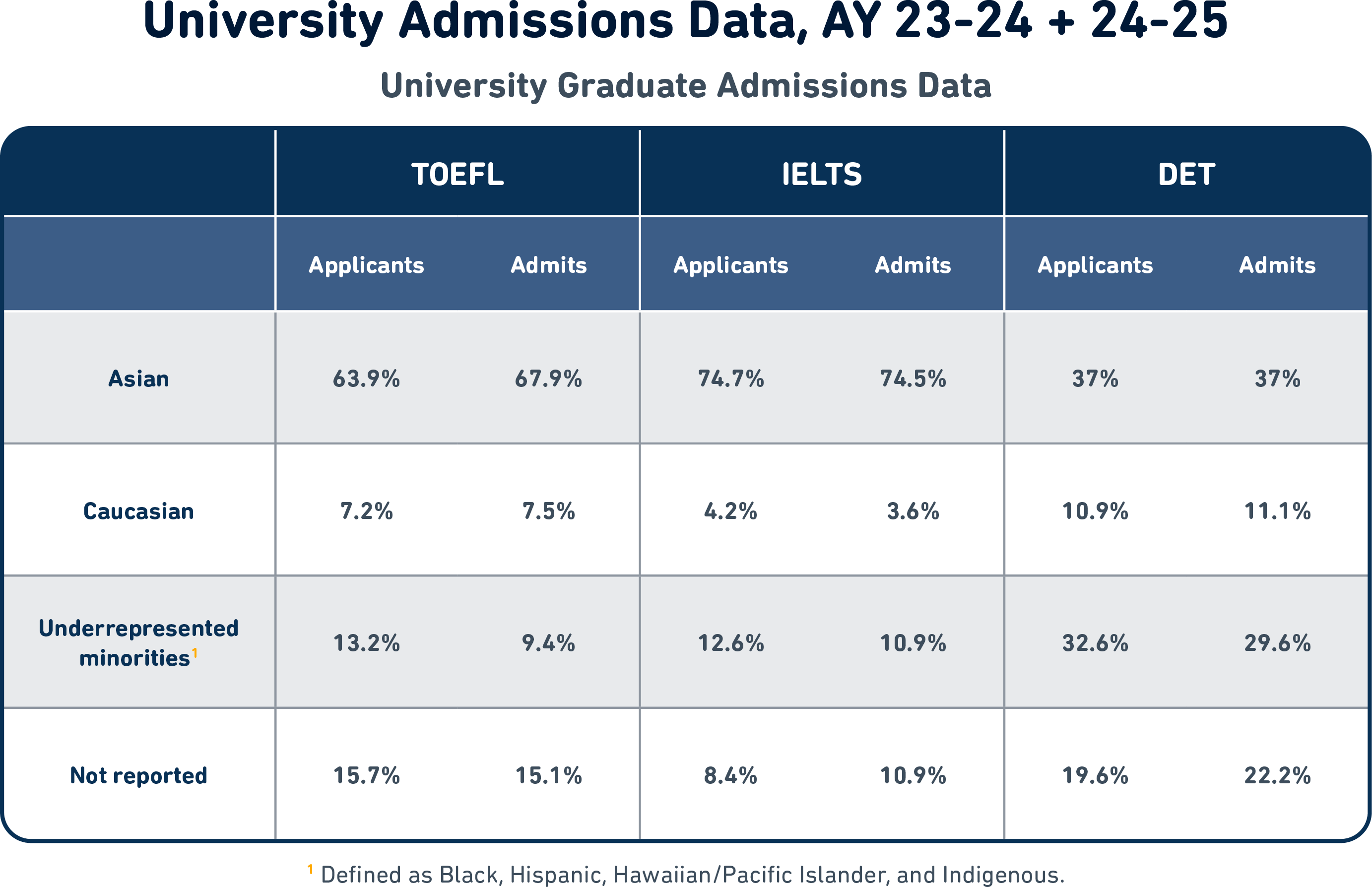Universities are making concerted efforts to celebrate student diversity and cultivate truly inclusive campus communities. With a focus on promoting cross-cultural understanding and enriching educational experiences, universities have implemented a range of initiatives to further diversify their student body—including accepting the DET!
International students enrich their campus communities
One way to diversify the student body is by welcoming international students, who bring cross-cultural experiences from all around the world. Recruiting a broad and diverse international student body starts with the admissions office, and strategies the officers implement to help the brightest minds gain access to higher education, no matter where they come from.
Yet, international students seeking to study abroad face many hurdles. For example, English language testing remains a massive and frustrating barrier to studying internationally, given the significant costs of traditional tests, and the inaccessibility of the test centers where these exams must be taken.
The good news is that for universities that accept the DET as proof of English proficiency, these barriers have been eliminated. Having a more affordable, accessible test paves the way for these institutions to cultivate a truly diverse international student body.
The DET appeals to students from diverse backgrounds
To examine how the DET has helped them diversify their student populations, our assessment research team collaborated with a small university in the Northeast to examine how accepting the DET has helped them diversify their student populations. The university started accepting the DET in 2023, after initial, temporary acceptance during the pandemic, partially as an effort to increase student body diversity.
This orientation towards diversity and access has yielded noticeable results. Based on the admissions data the university shared with us, there has been a substantial upward trend among international applicants from underrepresented backgrounds.
The table below summarizes self-reported ethnicity data from the university’s international applicant pool for academic years 2023-2025, from the time the university started accepting the DET.

The proportion of international students from underrepresented backgrounds applying to get their graduate degrees with the DET scores was much higher compared to other tests (~33% vs. 13%). This trend continued among admitted students, with a larger percentage of students who submitted the DET scores coming from underrepresented backgrounds.
What makes the DET so appealing to students from underrepresented backgrounds? It isn’t a question of ability; the data from the university shows that these underrepresented applicants on average score higher on the DET than other applicants.
Instead, it’s about access. The DET’s innovative and accessible nature gives the international student community a convenient way to showcase their English proficiency. With its adaptive format and quick results, the DET provides a reliable assessment that is able to reach students from outside the typical international applicant pool and aids in their successful academic journey.
Small changes can have big impact
Universities’ commitment to fostering and maintaining a diverse student body permeates at many different levels. As shown, something as simple as adopting a more inclusive, accessible English language testing policy can have a profound impact on who’s able to apply to both graduate and undergraduate programs. We hope this helps pave the way for a more equitable and empowering educational and language testing landscape.
[1] Defined as Black, Hispanic, Hawaiian/Pacific Islander, and Indigenous.
